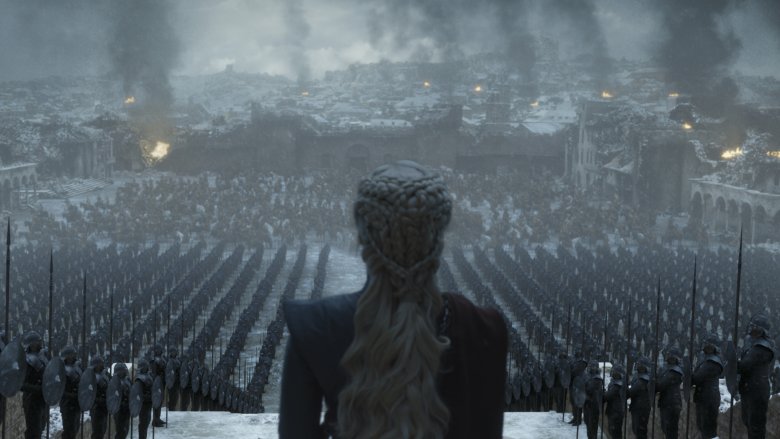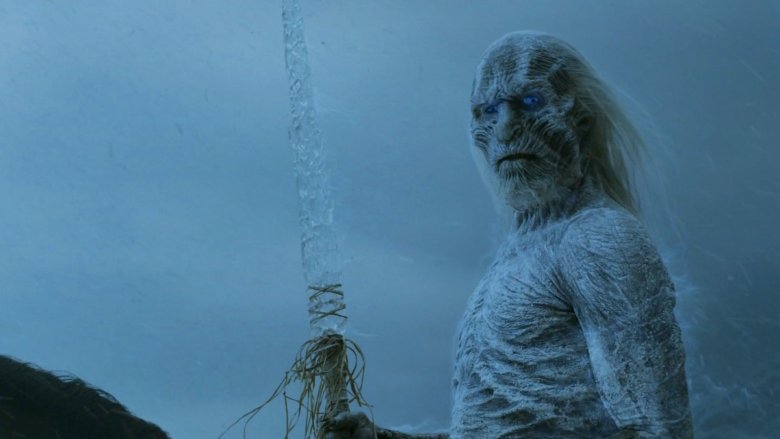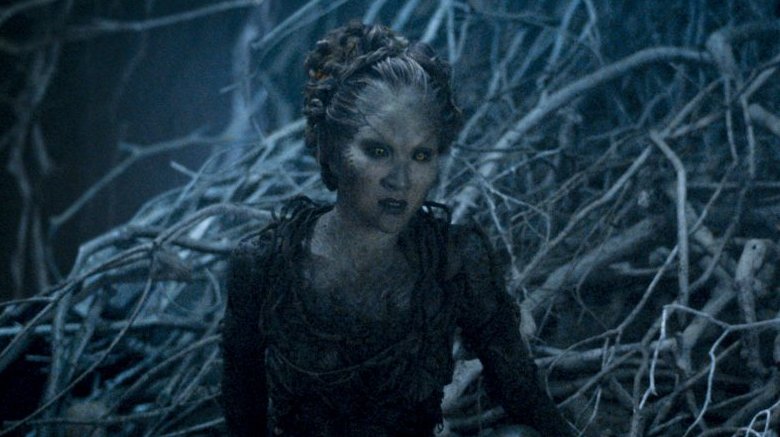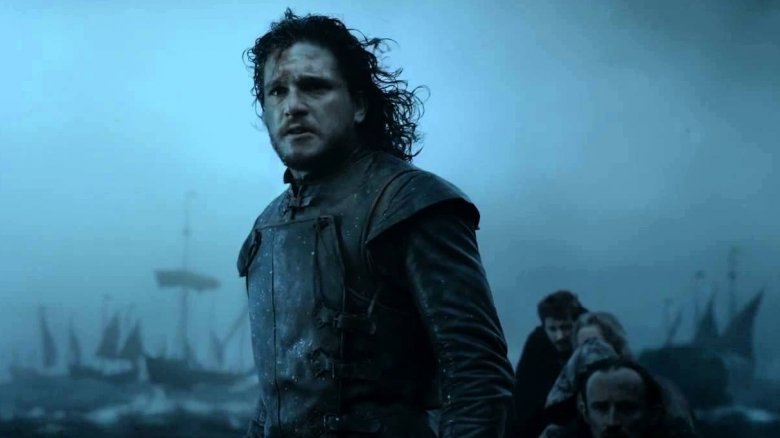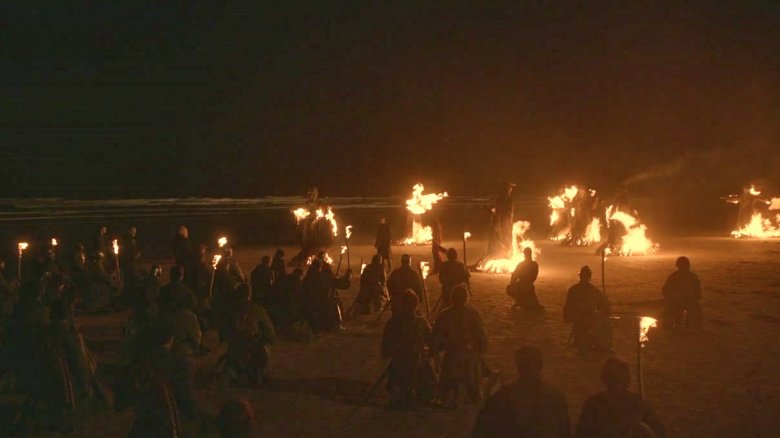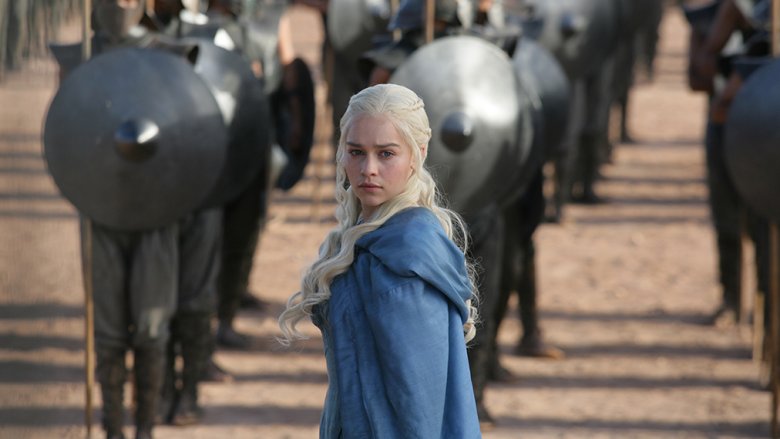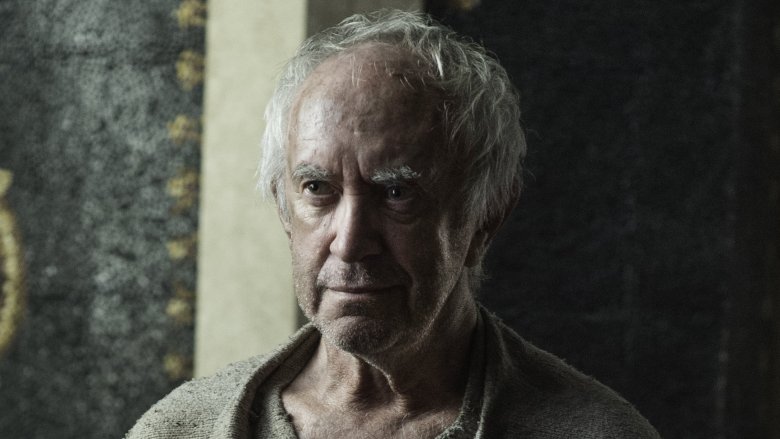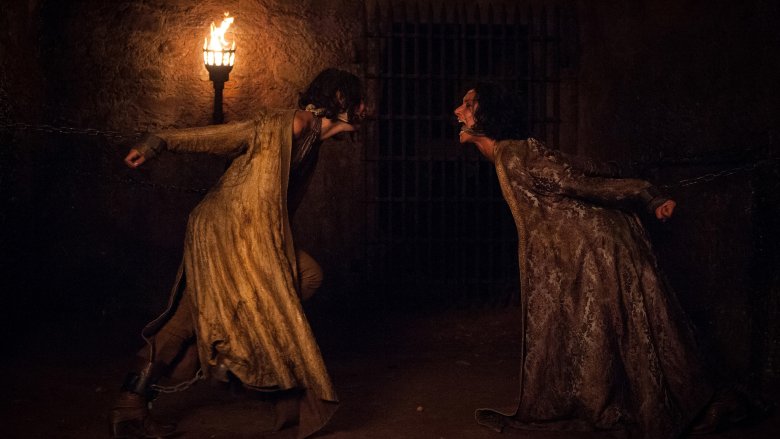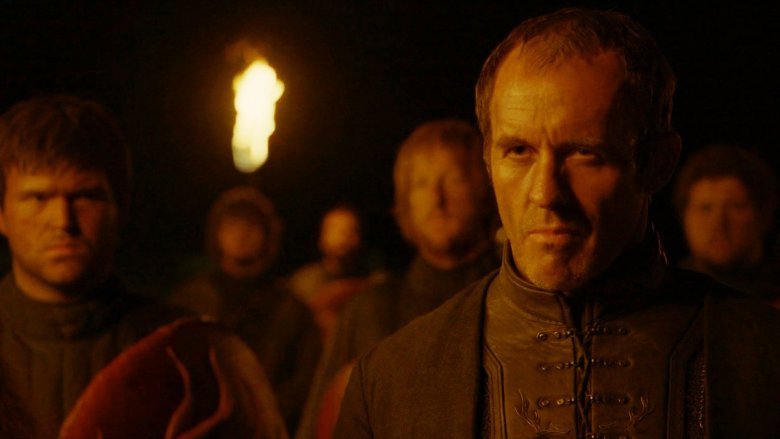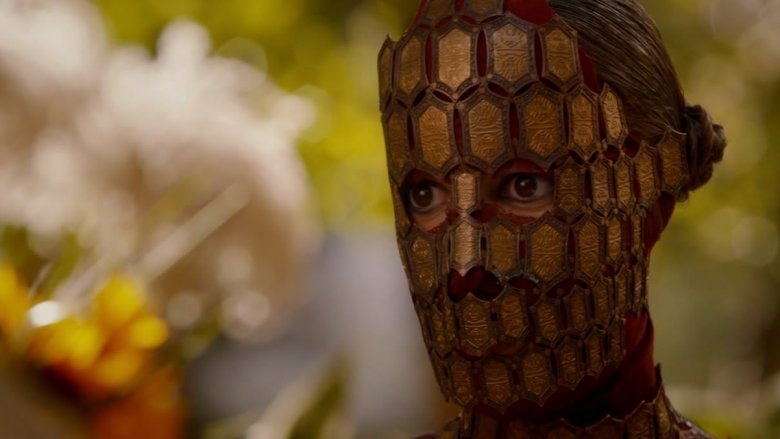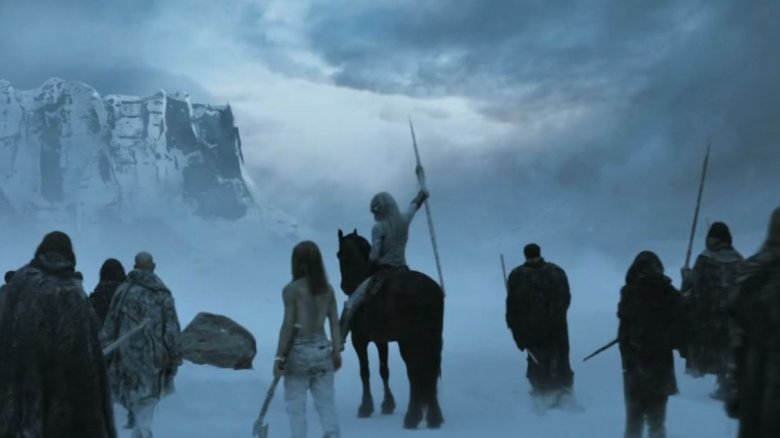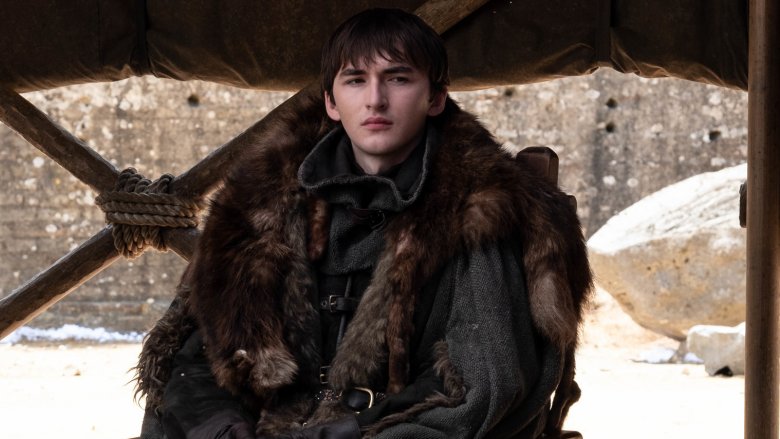Biggest Questions Game Of Thrones Left Unanswered
Game of Thrones is over, after years of dragons, prophecies, Valyrian steel swords, and too many betrayals to name. It went out as it lived, balancing spectacle with politics, concerned more with the sacrifices and mistakes people in power make than the minutiae of magic. Fans must contend with the fate of their favorites, and set in for the long, long wait for rumored spinoffs and, of course, the concluding two books. Summer might have come for the Westerosi, but now the winter of the fans begins.
In the aftermath of the finale, however, questions arise. There are threads left dangling, prophecies unanswered, and portentous warnings that now seem strange and pointless. Were these intentional subversions? Did the writers simply forget about them, or purposefully shunt them to the side when the show took unexpected turns? There are no answers yet, and likely few forthcoming. So here they are: The biggest questions Game of Thrones has left us to turn over and over in our minds for years to come.
What level of intelligence did the White Walkers possess?
The White Walkers were the doom that came, on silent, icy feet for eight seasons. They were immune to everything except the rarest sort of metals and glass and uninterested in anything resembling human sympathy. From their introduction in the first episode to the moment Arya Stark dispatched them all with a well-aimed strike, they were a terrifying mystery.
For the most part, anyway. Here and there, Game of Thrones dropped tantalizing hints as to the White Walkers' civilization, cognition, and even culture that we never saw brought to any sort of coherent conclusion. We know that the Children of the Forest created them from human men, and that they needed healthy human babies to continue their line. We know that they took these babies to a place in their home, the Lands of Always Winter, where they transformed them in something that looked an awful lot like a civilized settlement. We heard them emit what sounded like screeches, but to them seemed to be a sort of language. What we'll never know is what any of this meant. Had they succeeded in tightening their frigid grip upon the world, they might have had actual plans beyond mayhem and murder. Perhaps, as in the books, there were female White Walkers hidden away up north, and a mysterious and unique brand of ice magic unknown to any other race. For now, we'll have to content ourselves with ambiguity.
Are there more Children of the Forest?
Years ago when the show was new, Bran Stark was soothed by the stories Old Nan told of the Children of the Forest. Like White Walkers, giants, and dragons, they were the stuff of fantasy no living eyes had ever seen. Then, of course, the show wound on and magic, myth and monsters became very real indeed. The Children, it was revealed, lived on in the far north, wielding magic the likes of which we'd never seen before in defense of the Three-Eyed Raven.
After the Walkers attacked, we saw the Children we'd met perish in their efforts to protect Bran and his momentous future. Now, as the show has reached its epic conclusion, their fate is one big question mark. Were those Children we met the last to exist? Are there more, and can we really believe they'll be content to keep their powerful magic to themselves for eternity? What does their place in the balance of Westerosi power mean for the future? Their magic nearly brought about the end of the world in their creation of the White Walkers, and they are tied to the man who is now the king of their continent — who is one of only two people, including Meera Reed, to know they exist at all. It seems safe to assume they won't stay silent forever, but we'll likely never know how and when they'll decide to speak up.
What exactly is the new Night's Watch going to do?
Jon Snow made it to the end of the series intact, if not mentally unscarred, even occupying the final shot of the series: a march into the woods, Ghost at this side, leading the Wildlings home. This is a bittersweet ending, meant as punishment yet also as something of a spiritual reward. Jon was always at home in the "true North," unbound by Westerosi custom. He'll live on, leading the home for "bastards and broken men" that Tyrion claims the world will always need. He will be the shield that guards the realms of men, the watcher on what's left of the wall, a sword in the darkness.
But what does any of that mean? The finale surrounded Jon's fate with a lot of portentous talk but little of it presented the audience with any kind of concrete plans. Will they rebuild the Wall, and if so, in the absence of the White Walkers, why? Will he become a new sort of King Beyond the Wall? Will the new Watch root out the cruelty that flourished in isolation, like Craster's Keep and the cannibalistic Thenns? Maybe it'll just be a sort of commune? It could be any of these things or none of them. All we know is that Jon has returned to the Night's Watch, just as he began the series so many years ago. It's just that now, we have no clue what that means.
Why was the Lord of the Light the only god with actual power?
Religion runs wild in the world of Game of Thrones. There is, of course, the Faith of the Seven most of Westeros follows. There is the Many-Faced God, better known as Death. There is the Great Stallion worshiped by the Dothraki, who they believe will someday "mount the world" in the form of a favored follower. There is the Drowned God of the Iron Islanders, who demands his devotees ritually drown.
So why does the Lord of Light seem to matter more than the rest? From reanimating Jon Snow's very decidedly dead body to lighting the swords of thousands of Dothraki with a single chanted prayer, Melisandre, Kinvara, Thoros of Myr, and other followers of the enigmatic fire god wielded actual power in a way no other religion ever seemed to muster. Some, like the Qartheen Undying, were able to summon illusions through their mystic practices, while groups like the Faceless Men could assume the forms of those they killed in a process never fully illuminated to the audience. But the Lord of Light proved, repeatedly, that he could turn the tide of history with enough sacrifice, devotion, and king's blood. Why did we only ever see miracles performed in his name? Why did he fail Daenerys, despite the devotion of Kinvara and other high priestesses? After seeing incredible feats performed by his followers, will his religion gain favor in Westeros? We'll likely never know.
What happened to Slaver's Bay after Daenerys left?
It seems like an eternity has passed since Daenerys liberated Slaver's Bay. Yet she spent multiple seasons in that part of Essos, and ended up mired in Meereen for three seasons. Ruling, rather than jumping from city to city, roasting those in power and chopping the collars off the oppressed, turned out to be complicated. Word came from Yunkai and Astapor that what she had set right had quickly gone wrong again. Ultimately, after compromise, naval warfare, and the installment of ruling councils and fighting pits, Daenerys left Daario Naharis and the Second Sons in charge when she left for Westeros, tasking him with keeping the peace in the region she renamed Dragon's Bay.
So what happened? We know Grey Worm and his compatriots are set to return to Essos but are they going to do anything in the cities they helped conquer? Has a leader emerged from the native culture, as Daenerys hoped? Did the Sons of the Harpy regroup? The Greyjoys promised to help in exchange for an alliance against Euron — are any of their forces still there? For an area that took up such a chunk of screentime, the audience has been left with startlingly few answers as to its fate. It might have all worked out as a positive counterpoint to the destruction Daenerys brought to King's Landing. But it also might have gone terribly awry.
Did the Faith Militant just give up after the High Sparrow died?
Remember the sparrows? They were a pretty big deal there for a while — the only true, sustained threat the commoners, en masse, managed to present over the course of the series. Led by the High Sparrow, they were the dissatisfaction of the public given flesh and voice, so vociferous and powerful that they brought the Tyrells to their knees, pushed Cersei into reviving the Faith Militant, then managed to force her into her walk of penance. She had to blow up the Sept of Baelor with the High Sparrow and all the nobles he'd managed to win or shame over to his side just to make them pause.
After that explosive season finale, however, they were never heard from again. Which begs the question: Did they just... stop? This seems unlikely, as they were portrayed as having a massive grassroots movement supporting them, one that seemed to sprawl beyond the confines of King's Landing. Their figurehead perished in the flames, but despite his position he was very much that: a figurehead. Did people really just accept the loss of the soup kitchens the sparrows ran? Did the Faith Militant, so fanatically devoted they carved the seven-pointed star into their foreheads, truly shrug and lay down their arms? It seems hard to believe, yet the audience has been left with no answers.
What happened in Dorne?
There's a new prince of Dorne, apparently. We know because Varys mentioned him in "The Last of the Starks" as pledging his support to Daenerys, and he showed up in Dornish yellow to vote in Bran the Broken. And that's all we know about him: He's Dornish, he's a prince, he supported a queen who is now dead, now he supports Bran. So we're basically left to wonder: What on earth has happened to Dorne?
Let's recap. After Oberyn's death, his bastard daughters, the Sand Snakes, led by his grieving lover Ellaria Sand, led the country in rebellion. They murdered Oberyn's brother Doran, the reigning Prince of Dorne, his son and heir Trystane, and Myrcella Baratheon, both Cersei Lannister's only daughter and Trystane's betrothed. This brutal coup managed to peter out almost immediately: Nymeria, Obara, and Tyene Sand were all murdered outright, and Ellaria left to die of thirst after having to watch Tyene's corpse rot. So the royal family was wiped out, then those who wiped them out were wiped out, and then the first prince to emerge pledged fealty to a queen who immediately lost. Dorne is an enormous region of Westeros, home to many noble families and a desirable section of coastline. What happens there has country-wide implications, and we've ended up having absolutely no idea what they are.
Did any of the prophecies mean anything?
Prophecies mattered in the world of Game of Thrones. People married for them, built religions out of them, and burnt others at the stake to make them turn their way. The line between organized faith, heretical magic, folk belief, and mainstream culture was intentionally blurred — everyone from Melisandre to Maester Aemon gave some level of credence to the concept of the Prince (or Princess) who was Promised. Rhaegar, in part, blew up the established order in Westeros for the sake of prophecy, and religions that incorporated them, like the Lord of Light, had actual power at their command.
What isn't clear, at the end of the series, is how much they mattered, if at all. This might have been a purposeful choice — Game of Thrones lived to subvert expectations and fantasy cliches. But the sheer scope and story investment in the concept of figures like the Prince who was Promised, Azor Ahai, and others begs for more clarity than "they didn't matter." Did Arya fulfill them, though she wasn't "born amid salt and smoke?" Did Melisandre wield the absolutely exorbitant level of power she did because she was part of the prophecy? Was Daenerys on the way to carrying the prophecy out until she went off the rails, and it's all really about how fickle and undecided fate can be, even when you've done 90 percent of the job? If someone knows, it's not the audience.
What was up with Quaithe?
If the name "Quaithe" doesn't ring a bell, you might recall her better as "the mysterious lady in the metal mask who offered Daenerys a bunch of cryptic advice back in Qarth." We learned, like Melisandre, that she was shadowbinder from the fearsome "shadow lands" beyond Asshai, and she pointed Daenerys towards Pyat Pree when he stole her dragons. She seemed to know things no one else did, and was seen painting symbols on a sailor's back to protect him from the "doom" surrounding Old Valyria, which he was set to travel across. She appears more often in the books, where she pops up to impart truly opaque warnings about "perfumed seneschals" and "mummer's dragons." But in the show, she never showed up again.
So... who was she? With her unique costume and rarefied knowledge, not to mention her importance in the books, she seemed to be the kind of character we'd absolutely see again. But we never did, and her strange words ended up, like the prophecies we were told to heed, not seeming to have much of a place in the final few episodes. Where did her knowledge come from? Why did she care so much about Daenerys, and if she really was coming from an origin like Melisandre's, why did she come to such a different conclusion about who to support? Like the rest of Qarth, she receded into the background, confined to season 2.
Why are the seasons so long?
One of the most immediately interesting aspects of the Game of Thrones world are the bizarre seasons. Winters and summers can last for years, a fact elderly characters like Old Nan use to chide their "sweet summer children," ignorant of the privations of winter. House Stark warns everyone that "Winter is Coming," a warning that serves to signal their inevitable strength but also remind everyone that the summer they might currently occupy can very literally end at any time. Ned Stark remarked towards the beginning of the series that their current summer had then lasted for nine years, and its end was a big enough deal to end season 6 with an episode titled "The Winds of Winter."
But why did the seasons function this way? The biggest reason seemed to be the White Walkers, who "brought the storm" as Jon Snow liked to warn, and indeed, a sprig of grass peeking through the northern snow in the series finale seemed to signify that their defeat meant the end of winter. But if that's so, why did the winters and summers still last so long in the centuries before their return? Was it metaphorical or literal or just bizarre for the sake of it? George R.R. Martin has gone on record as saying there is a supernatural reason for the seasons he will reveal by the end of the books, but it certainly didn't make its way into the television series.
Does Bran's warging even matter?
It's been a long, strange trip for Bran. He began as Bran Stark, a little boy who loved to climb, and ended as Bran the Broken, first of his name, King of the Andals and the First Men. In between, he had the most conventionally magical journey of any major character. Much was made of his ability to "warg," or see through the eyes of people and animals, bending them to his will. Others popped up with this ability as well (and in the books, it's something every Stark kid can do with their direwolves) but none were as able as Bran.
Yet this power faded in favor of his ability to perceive all events, past and present. Now that he's king, one wonders why his warging even mattered. He didn't use it to turn the tide in battle, either against the Walkers, the Lannisters, or Daenerys. He didn't use it to become King. Really, it didn't much matter at all, for all the time spent on it. And now that he's the most powerful man in the land, it leaves a bit of an odd aftertaste. Tyrion makes much of Bran's underdog story, but he's also placed someone capable of mind control at the top of the Westerosi hierarchy. Doesn't that give anyone pause, especially given how little Bran cares for everyday human concerns? He might be Bran the Broken for now, but he could easily become Bran the Totally Terrifying Psychic Tyrant.
